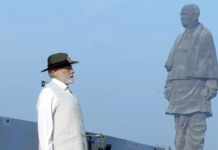The Threat Assessment Brief for Asia has put out by the Arms Control Association, has stated out some interesting insights about the many nuclear warheads India and its neighbouring countries does have and how does it even stack the rivalries. The most interesting of all the insights is that Pakistan has more nuclear warheads than India.
So while Pakistan has 130 total warheads, comparatively India has only 118 warheads. And the giant China has almost 180 warheads across the Himalayan range and almost 263 if you include the DF-26 waiting dismantlement.
While China is trying to improve its arsenal in relation with the United States (US), and is trying to develop‘full spectrum’ deterrence, this will undoubtedly will have an effect on India and on Pakistan as well.
The report, written by Greg Thielmann and David Logan of the Princeton University, speaks about an interesting arms race vortex that is gripping the world. “While Pakistan’s nuclear arsenal is designed to counter India’s conventional and nuclear forces, New Delhi measures its own nuclear weapons program against that of China. Beijing, in turn, judges the adequacy of its nuclear arsenal against the threat it perceives from the United States’ strategic offensive and defensive capabilities. And in its efforts to mitigate the ballistic missile threat from North Korea, the US and its allies in the region are expanding their strategic and theater missile defence capabilities,” it says.
The report says that “technical realities and doctrinal inclinations” will keep India a “inherently second strike system” against China and Pakistan. “Moreover, tight control over India’s operational nuclear force by civilians and the oversized role of the DRDO over new nuclear weapons development imply that military necessity is unlikely to be the principal driver of nuclear weapons policy,” it said.
The report says, “India’s willingness to sign the Hague Code of Conduct Against Ballistic Missile Proliferation “shows that such leverage can be effective given New Delhi’s ongoing campaign to secure the benefits of membership in the Nuclear Suppliers Group. It is time Pakistan and India formally joined the CTBT or converted their unilateral moratoria on nuclear testing into a legally binding agreement.”












